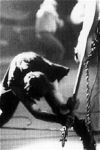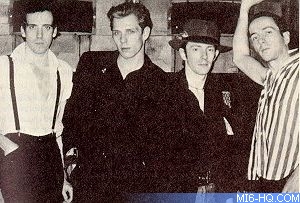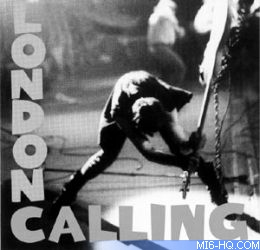|
|
|
 |
| |
A James Bond movie using a track by a 70's punk rock
band? What would Ian Fleming think?
But "London Calling" by The Clash, although
written over 20 years ago, is a perfect fit for the
"Die Another Day" story...
|
|
London`s Calling For 007
1st November 2002
In a break from tradition, "Die Another Day" will use
a contemporary piece of music when Bond arrives back in London
from his trip to Cuba. "London Calling" by The Clash
will shake and stir the older generation Bond fans with an iconic
track from the later 70's punk rock scene.
The lyrics, although written over 20 years ago, fit the film
perfectly and are far more relevant to the story than the Madonna
title song (even referencing Bond's disdain for The Beatles!).
Recorded in 1979, the album of the same name marked a brief resurgence
in the genre that had been dying off towards the end of the 1970's.
| "London Calling" - Lyrics
London calling to the faraway towns
Now that war is declared-and battle come down
London calling to the underworld
Come out of the cupboard, all you boys and girls
London calling, now don't look at us
All that phoney Beatlemania has bitten the dust
London calling, see we ain't got no swing
'Cept for the ring of that truncheon thing
The ice age is coming, the sun is zooming in
Engines stop running and the wheat is growing thin
A nuclear error, but I have no fear
London is drowning-and I live by the river
London calling to the imitation zone
Forget it, brother, an' go it alone
London calling upon the zombies of death
Quit holding out-and take another breath
London calling-and I don't wanna shout
But when we were talking-I saw you nodding out
London calling, swee we ain't got no highs
Except for that one with the yellowy eyes
London calling, yeah, I was there, too
An' you know what they said? Some of it was true!
London calling at the top of the dial
After all this, won't you give me a smile?
|
|

Above: British punk rock
band The Clash, formed in 1977 and disbanded in 1986
|
 |
|
Biography
The Clash were the most accomplished band to come from
the British punk rock scene of the 70's. The group was formed
by guitarist and singer Joe Strummer, guitarist and singer
Mick Jones, bassist Paul Simmonon, and drummer (who was
replaced in 1977 Topper Headon).
They first gained national recognition opening for The
Sex Pistols, the other major punk band on the scene. But
unlike The Pistols, The Clash had a straightforward earnestness
to go with their punk anger. Their music was simple, loud,
and abrasive.
|
In December 1979, The Clash released "London Calling",
a critically acclaimed double album that found them expanding
their music style from punk to a more eclectic approach. The album
spawned a single in a title song, which became the biggest U.K.
single during their existence, getting to number 11, while the
album hit number 9 in the U.K. and was their first real U.S. success
at number 27. "Train In Vain (Stand By Me)" from the
album was The Clash's first U.S. single, reaching number 23.
|
"Sandinista!" a triple-LP set released in December
1980 took their eclecticism to new lengths. The album got
to a disappointing number 19 in the U.K. but was surprisingly
strong number 24 in the U.S. The Clash again grazed the
Top 40 in the U.K. with the album "The Magnificent
Seven" in May 1981.
Their next, "Combat Rock", was a straightforward
rock collection that was their last album with the original
personnel and their most popular. It hit number 2 in the
U.K. and number 7 in the U.S. (where it sold a million copies),
and its singles "Should I Stay Or Should I Go?"
and "Rock The Casbah" were hits on both sides
of the Atlantic.
Meanwhile, Headon left the band in early in July 1982,
and Jones was fired by Strummer and Simonon in September
1983. He formed Big Audio Dynamite. Strummer and Simonon
reorganised and added new members, releasing "Cut The
Crap" in the fall 1985, but by the start of 1986, The
Clash was no more.
|
|

Album: London Calling
Artist: The Clash
Label: Columbia
|
|
|
|